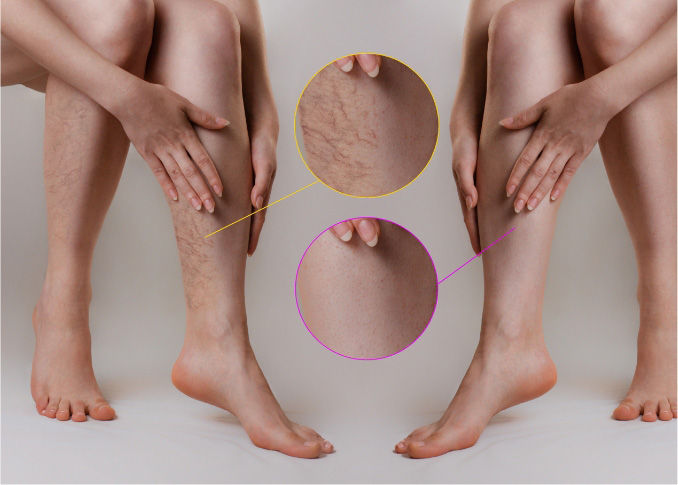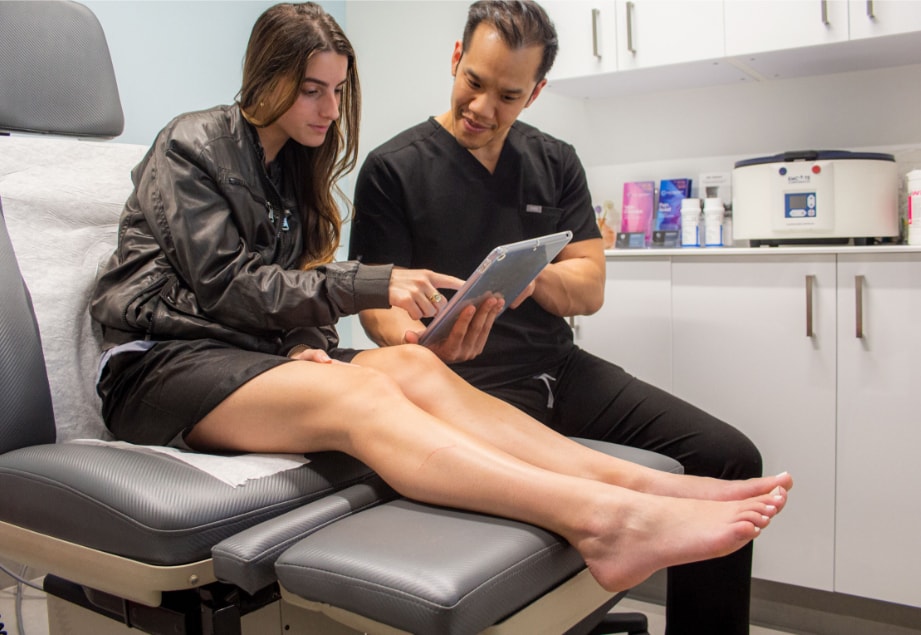Why Should You See A Vein Specialist?
In the intricate symphony of our bodies, veins play a pivotal role in maintaining proper circulation and overall well-being. However, when issues arise within our vascular system, seeking specialized care becomes paramount. This article delves into the realm of vein health, highlighting the significance of consulting a vein specialist. Addressing the question of what kind of doctor treats veins," we shed light on the expertise of these medical professionals and explore the crucial role they play in ensuring optimal vascular health.
Understanding Vein Specialists
What is a Vein Specialist Called? A vein specialist, often referred to as a phlebologist, is a medical doctor with specialized training in diagnosing and treating conditions related to veins and the vascular system. These highly skilled physicians possess a comprehensive understanding of venous diseases, ranging from common concerns like varicose veins and spider veins to more complex conditions such as deep vein thrombosis (DVT) and chronic venous insufficiency (CVI). Their expertise goes beyond cosmetic concerns, focusing on the underlying health issues that can affect the veins.

The Role of a Vein Specialist
- Accurate Diagnosis: Vein specialists are equipped with advanced diagnostic tools and techniques tailored specifically for venous disorders. Through ultrasound imaging, Doppler scans, and other non-invasive procedures, they can pinpoint the root cause of your symptoms.
- Personalized Treatment Plans: Once a thorough assessment is conducted, a vein specialist devises a personalized treatment plan that aligns with your unique needs and goals. This may involve lifestyle modifications, minimally invasive procedures, or, in severe cases, surgical interventions.
- Minimally Invasive Procedures: The field of venous medicine has witnessed remarkable advancements in recent years, reducing the need for invasive surgeries. Vein specialists are proficient in performing cutting-edge procedures like endovenous laser treatment (EVLT), radiofrequency ablation (RFA), and sclerotherapy. These procedures offer high success rates, shorter recovery times, and minimal discomfort.
- Chronic Venous Insufficiency (CVI) Management: Vein specialists excel in managing CVI, a condition where weakened veins struggle to return blood to the heart. By addressing CVI, they can alleviate symptoms like leg swelling, pain, and skin changes, thereby enhancing your overall quality of life.
- Preventive Guidance: Beyond treatment, vein specialists empower you with preventive strategies to maintain healthy veins. They offer advice on lifestyle modifications, exercise routines, and dietary changes that can significantly reduce your risk of developing venous disorders.

Collaboration with Other Medical Disciplines
The expertise of a vein specialist extends beyond their field, as they often collaborate with other medical disciplines to provide comprehensive care. In cases where underlying medical conditions contribute to venous disorders, such as diabetes or obesity, a vein specialist works in tandem with endocrinologists or nutritionists to address the holistic health of the patient.
Conclusion:
Our veins, the unsung heroes of our circulatory system, deserve meticulous care and attention. A vein specialist, armed with specialized knowledge and advanced techniques, offers a lifeline to those grappling with venous disorders. From diagnosis to treatment and prevention, these medical professionals are dedicated to optimizing your vascular health and enhancing your overall well-being. So, if you find yourself pondering "why should you see a vein specialist?" remember that their expertise can unlock a healthier future for your veins and your vitality.
Comments
Post a Comment